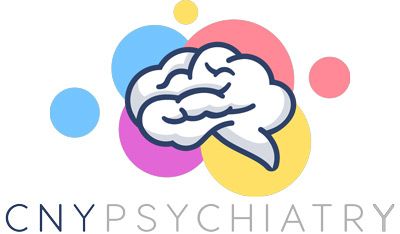National Suicide Prevention Awareness: How TMS Therapy Can Help
Jason Stepkovitch, MD • September 17, 2022

September is Suicide Prevention Awareness Month, a time to increase the dialogue around suicide and reduce the stigma around depression and other mental health conditions.
It is possible to prevent suicide if you have the proper tools. And if you're dealing with depression, then TMS Therapy and other modes of treatment are available to help those suffering from suicidality by treating underlying depression. Keep reading to learn about National Suicide Prevention Awareness Month and how TMS Therapy can help prevent death by suicide.
Why Suicide Prevention & Awareness Matter
Raising awareness about suicide prevention, gaining insight into mental illness, and having open, honest conversations with friends and family members about suicide may help to save lives. Stigma prevents people considering suicide and those around them from seeking the help they need.
Most people do not talk about it, but it's been shown that awareness and open dialogue can be beneficial to suicide prevention efforts. Talking about suicide allows individuals to share their stories, and the discussion may lead to them receiving the help they need.
Raising awareness about suicide prevention can demystify depression and let people know that help is available should they ever need it. It can also encourage people to speak up if they notice or hear someone in distress.
The Link Between Depression & Suicide
According to the Department of Health & Human Services (HHS), most people with depression don't commit suicide, but depression is associated with significantly higher suicide risk. Depression severity correlates with this risk.
- 2% of people who receive outpatient treatment for depression will die by suicide.
- 4% of people who receive inpatient treatment for depression will die by suicide.
- 6% of people who receive inpatient treatment following a suicide attempt will die by suicide.
The
Center for Suicide Prevention also shares that "those suffering from depression are at 25 times greater risk for suicide than the general population."
Helping Someone Struggling With Depression & Suicidal Thoughts
If you believe someone may be having suicidal thoughts try and encourage them to talk about their feelings by asking one of the following questions:
- "Are you thinking about suicide?",
- "Are you having thoughts of ending your life?"
- "Are you thinking about killing yourself?"
- "I don't know how you're feeling, but I'd like to try and understand."
Also, be sure to:
- Remind them how much you care and that they are not alone.
- Be non-judgmental; do not criticize or blame them.
- Talk about who they may hurt if they leave them behind.
- Encourage them to find care and offer to help.
- Keep promises and follow up on any commitments you make in providing support.
Listening is often enough, so long as you let them know you care and are there for them. You don't have to offer a solution or know all the answers.
Knowing The Warning Signs
People who are suicidal often exhibit warning signs through their words or actions. Here are some warning signs to watch out for:
- Dramatic mood swings
- Social withdrawal
- Aggressive, impulsive, or reckless behavior
- Increased drug or alcohol use
- Tying up loose ends or giving away personal belongings
- Buying a weapon or collecting pills
- Saying goodbye to friends and family

Contacting Crisis Resources
If someone intends to kill themselves and they're in danger of doing so, you can help keep them safe by not leaving them alone, getting any dangerous items out of the way, and calling a mental health professional immediately.
For emergency help:
- Call or text 988 immediately.
- Chat the Suicide & Crisis Lifeline at 988lifeline.org.
- Text NAMI to 741-741 to connect to the Crisis Text Line.
- Take them to the nearest emergency room.
Connecting to Professional Care: TMS for Depression Can Help
TMS therapy is a noninvasive therapy that stimulates areas of the brain affecting one's emotional state, memories, appetite, and sleep patterns. It is FDA-approved for major depression, obsessive-compulsive disorder, chronic pain, and more.
One study, among many, produced results showing 77% of patients were found to have decreased suicidal thoughts in a study, and 71% reported having no suicidal thoughts after a course of TMS therapy sessions.
Seeking TMS Therapy for Depression in Syracuse & Binghamton
TMS therapy is one treatment option for depression that can help prevent death by suicide. To learn more about how TMS therapy works and if it's suitable for you or a loved one, contact us today to set up an appointment at one of our locations in Syracuse, NY, or Binghamton, NY. You do not have to suffer alone.
We look forward to helping you or someone you love to achieve a happier and happier life!
Reference Links:
https://www.nami.org/Get-Involved/Awareness-Events/Suicide-Prevention-Awareness-Month-(SPAM)
https://www.nami.org/NAMI/media/NAMI-Media/Infographics/NAMI_Suicide_2022_FINAL.pdf
https://988lifeline.org/promote-national-suicide-prevention-month/
https://www.southmiamirecovery.com/awareness-suicide-prevention/
https://www.rethink.org/advice-and-information/carers-hub/suicidal-thoughts-how-to-support-someone/




